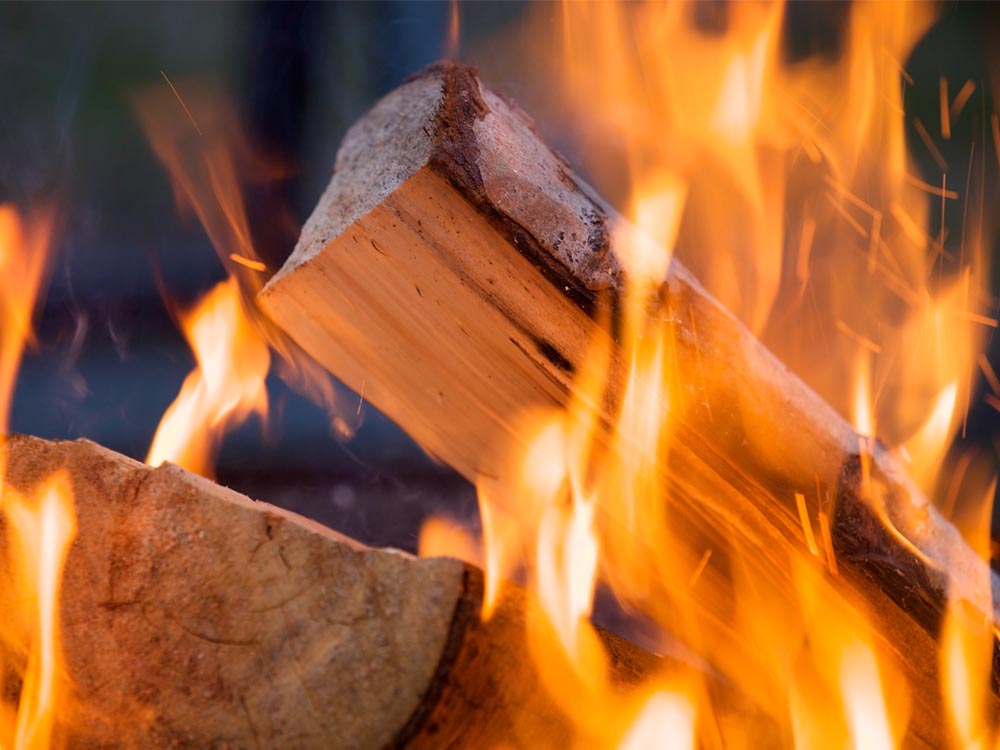
With winter in full swing, many people rely on more than just central heating to keep their homes warm. It’s common in cooler areas for residents to rely on wood heating whether it be a fireplace or a wood-burning heater. Residential wood heating can contribute 80-90% of elevated PM2.5 in communities and is a major source of air pollution, especially in rural areas. The increase in particulate matter emissions causes on average 10,000 to 40,000 premature deaths yearly in the U.S. and has been linked to an increase in lung cancer and dementia.
In addition to creating air pollution, wood heaters also produce “carbon dioxide, methane, and black carbon,” which all are harmful if inhaled and can cause permanent damage to the brain and body. The effects of harmful emissions are exacerbated during winter and health conditions can become aggravated as polluted air gets trapped near the surface. These are only a few of the dangers that residential wood heaters pose to users.
3 Key Reasons to Avoid Wood Heaters
-
Health Concerns
If we haven’t made it clear, exposure to and inhalation of any kind of combustion smoke is dangerous and potentially harmful to everyone, but especially to asthmatics, individuals with COPD, and elderly individuals. One prominent study suggests that when you breathe in ultrafine particulates from smoke, it enters your lungs where it is absorbed into your bloodstream and pumped directly to your brain, which in turn affects your whole body and can lead to worsening illnesses. Wood smoke can even cause inflammation, coughing, wheezing, asthma attacks, and heart attacks.
-
Financial Cost
One common misconception is that it is cheaper and more energy efficient to burn wood than rely on electricity to heat your home. Not only is it considered one of the most inefficient ways to heat your home, but fireplaces and heaters can only heat a limited space and often leave other areas unregulated and cold. You may even face high insurance premiums as wood fireplaces are responsible for 4,000 residential fires each year. The lack of air flow and heat circulation pose issues including improper ventilation and increased particulate exposure indoors that also need to be considered.
-
Environmental Impact
The impact on the environment can be analyzed through macro and micro lenses. Not only does wood smoke triple the number of pollutants within the home, but it releases harmful toxins like benzene and formaldehyde. Just the mere existence of smoke in the environment increases the risk of smog and acid rain, which are both caused by an increase in air pollution. The heat and smoke that are lost through the chimney and during combustion can threaten the quality of air for both the user and residents.
Governmental Aid
The dangers of residential wood heating can cause harm to users and their neighbors as exposure to heightened PM2.5 levels can cause a variety of health issues. In response to calls for regulation of gas and wood burning products, the EPA is set to conduct research and publish a hierarchy list among wood heaters available for retail purchase in the U.S.
This campaign for cleaner air has three main goals regarding air quality awareness: 1) conduct particulate emissions testing, 2) create ranked list of appliances based on data collected in previous step, and 3) provide hierarchy list to state, local, and tribal air agencies to enable them to make informed decisions about current and future programs.
With these goals in mind, the informational list can help raise awareness of the best performing residential wood heating device. The hierarchal list can also be used to increase access to information including the communal impact of wood heaters and reliable air quality data. However, the most important proposed outcome is an increase in the quality of local air, especially for communities experiencing harmful levels of exposure to PM2.5.
Alternatives to Wood Heating
When looking at alternative heating devices, it’s crucial for the device to be smokeless, meaning there are zero emissions from combustion being emitted from the heating process. While there are plenty of smokeless heaters on the market that’ll do the job, why settle for a device that only heats your home. The Beyond by Aerus Guardian Heater is a research-backed device that not only provides a source of energy and cost-efficient warmth, but it also reduces pathogens and contaminants in the air and on surfaces. Learn more about the smokeless heater that protects your space from harmful pathogens below.


